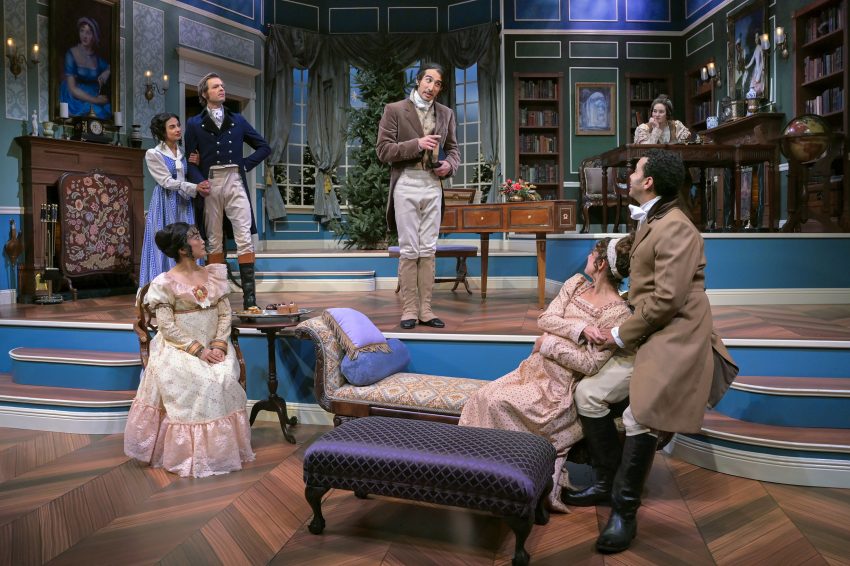
“Miss Bennet” Celebrates Women’s Gifts in Romantic Comedy—at TheatreWorks
Gunderson & Melcon Craft Delightful Sequel to Jane Austen
by Rachel Norby
“Miss Bennet: Christmas at Pemberley,” a clever comedy, exposes how social class limits women’s rights. The chasm between the classes and the blooming of women’s talents creates an intriguing comedy of manners.
A wonderfully crafted, elegant drawing room forms the perfect backdrop to a Jane Austen sequel. From the antique piano to snow falling dreamily beyond the bay windows, the lavish details create a picturesque Romantic setting
Elissa Beth Stebbins is perfectly cast as independent middle sister Mary Bennet. Playwrights Lauren Gunderson and Margot Melcon develop Mary into an educated, capable woman. Stebbins makes Mary a believable woman, ahead of her time. We feel Mary’s exclusion, her frustration at being treated like an awkward teenager. We understand her thirst for knowledge and rejoice at her refusal to settle on a socially-approved husband.
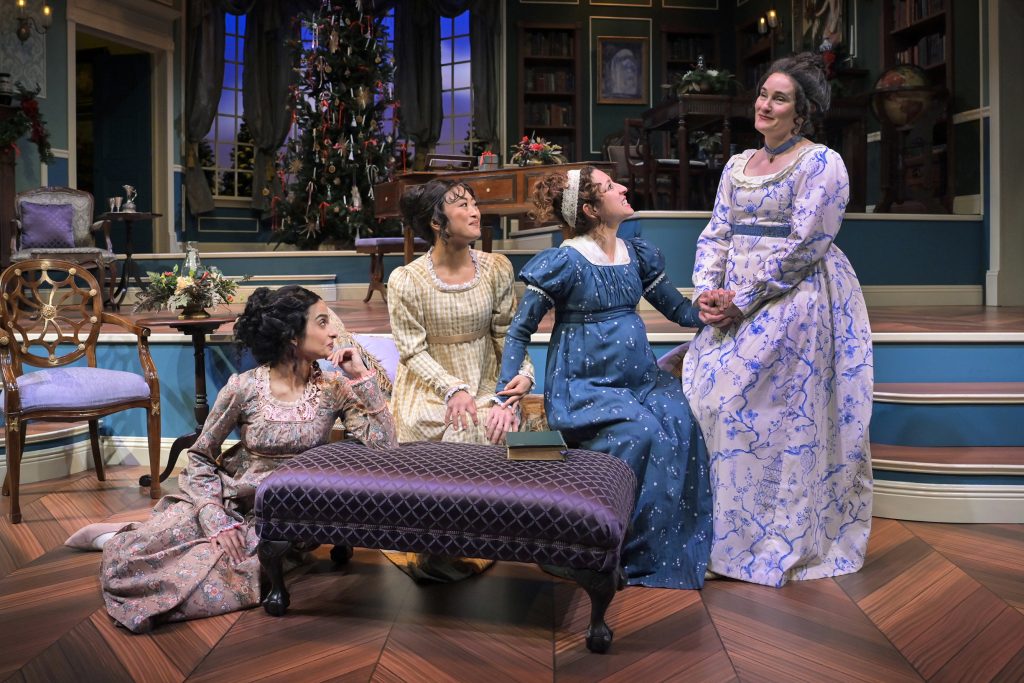
As elder sister Jane Bingley, Amanda Pulcini expertly portrays a supportive, caring person. Jane is easy-going and conforming. Her constant eating delightfully reaffirms her pregnant belly.
Maggie Mason makes haughty, aristocratic Anne de Bourgh an annoying and condescending Jane Austen villain. Mason makes the most of a richly comic snob, who is all about “me, me, me.”
As Elizabeth Darcy, Kauser Mohammed plays a confident, witty woman, settled into wedded bliss. While Elizabeth begins as flighty, Mohammed deepens the role, gradually.
Sophie Oda’s obnoxious Lydia Bennet travels a wide character arc, starting as odious, but softening to the point of likability. Oda’s performance captures our tendency to act with our families as they would like to see us, rather than the person we actually are. Lydia becomes less distasteful and more honest. She changes from selfishness to selflessness, impressively.
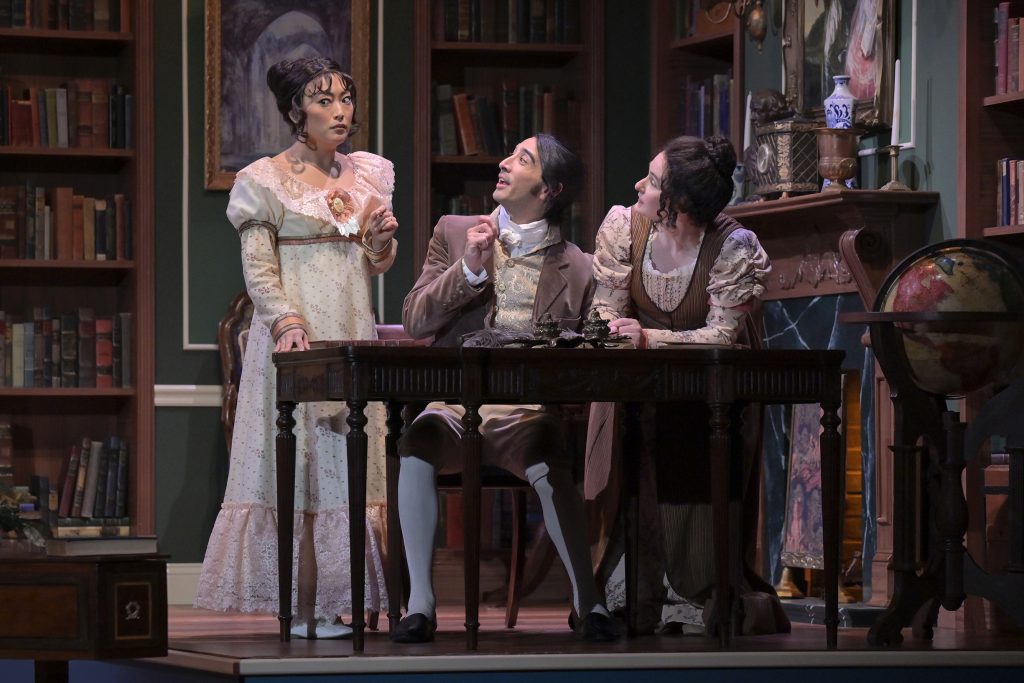
Although Lydia pretends to be intensely happy and sociable, she is hiding her discontent and loneliness. Only when she realizes that her family sees through her performance can she relax. “Miss Bennet” exposes the cost of conforming. Lydia puts that selfish energy into new-found empathy. Her derisive bluntness gives way to graceful affection.
Adam Griffith and William Thomas Hodgson embody conforming gentlemen of the wealthy class, though they do nothing to earn their standing. They represent males unconscious of their privilege. Darcy acts rather foppish and Bingley dreams, cleverly avoiding crossing the women.
Hodgson’s Bingley swims in all-consuming wedded bliss. Bingley’s air of wisdom clearly stems from his devotion to Jane and his heir.
The men lack purpose or jobs, but adeptly represent loving, supportive partners. When one says, “Have faith in your fellow men,” another replies, “and what of the women?” A man responds: “I have faith in them year-round.”
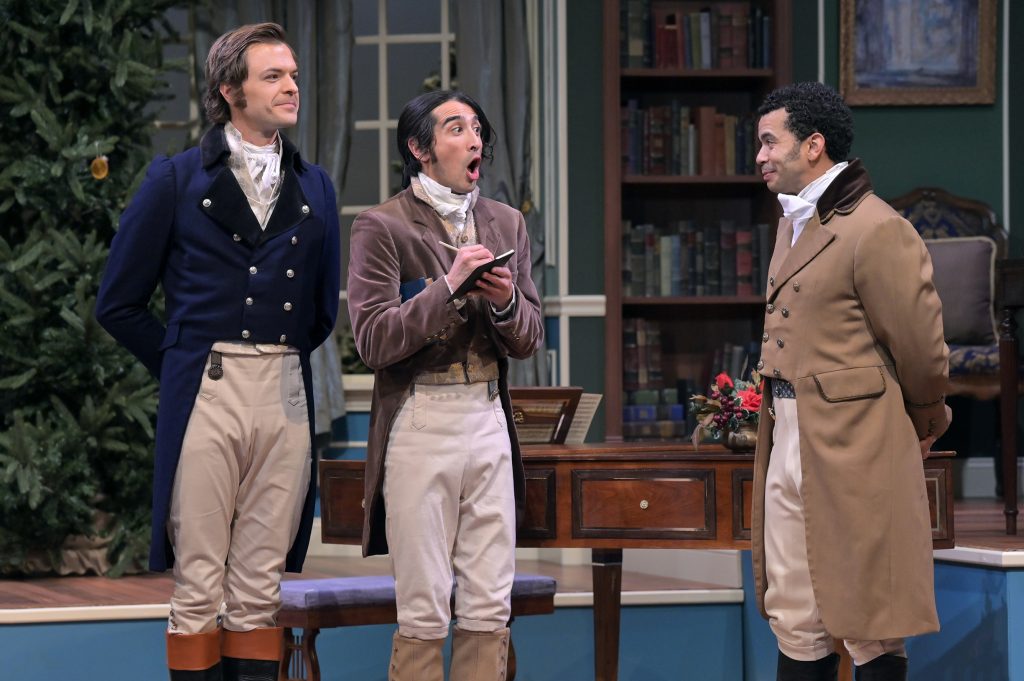
I thoroughly enjoyed the men’s conversations with the flustered Arthur de Burgh (David Toshiro Crane). Crane’s exceptional performance is both comedic and sincere. His affection for Mary blossoms into the earnest agreement we expect of an Austen romance.
Even though Arthur comes from an even wealthier and more noble class, Crane brings him down to earth, making him the right partner for intellectual Mary. The women show the way, delightfully. Bravo!
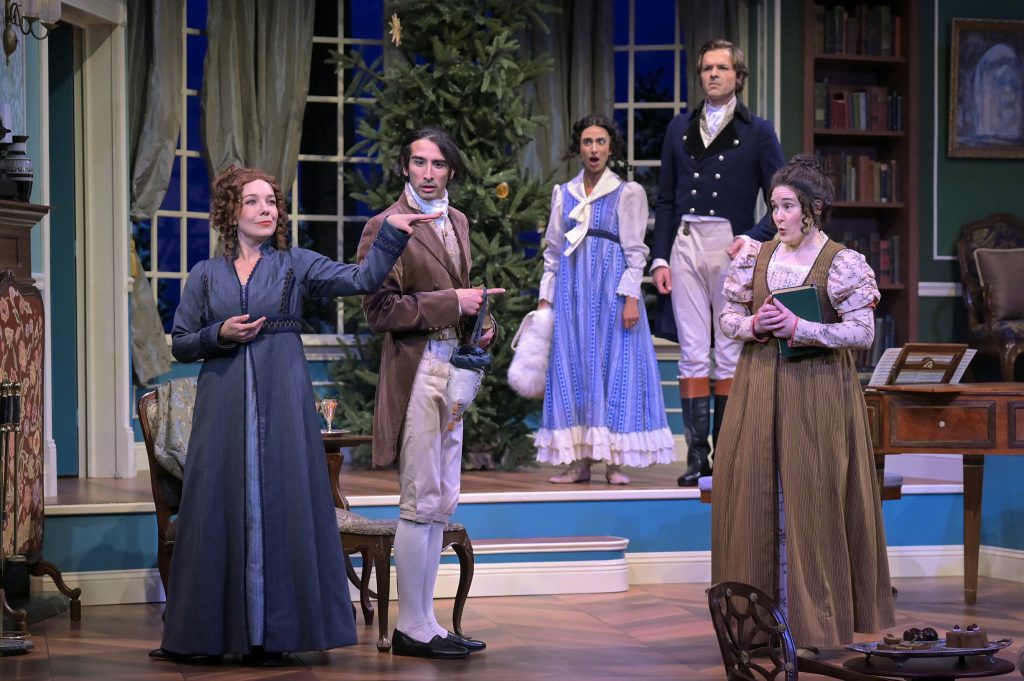
“Miss Bennet: Christmas at Pemberley” by Lauren Gunderson & Margot Melcon, directed by Jeffrey Lo, at TheatreWorks, Palo Alto, California. Info: theatreworks.org – to December 29, 2024.
Cast: Elissa Beth Stebbins, David Toshiro Crane, Sophie Oda, Kausar Mohammed, Adam Griffith, Amanda Pulcini, William Thomas Hodgson, and Maggie Mason.
Banner photo: The Bennet sisters & their husbands greet a Lord (David Toshiro Crane), as Mary (Elissa Beth Stebbins) observes. Photos: Kevin Berne